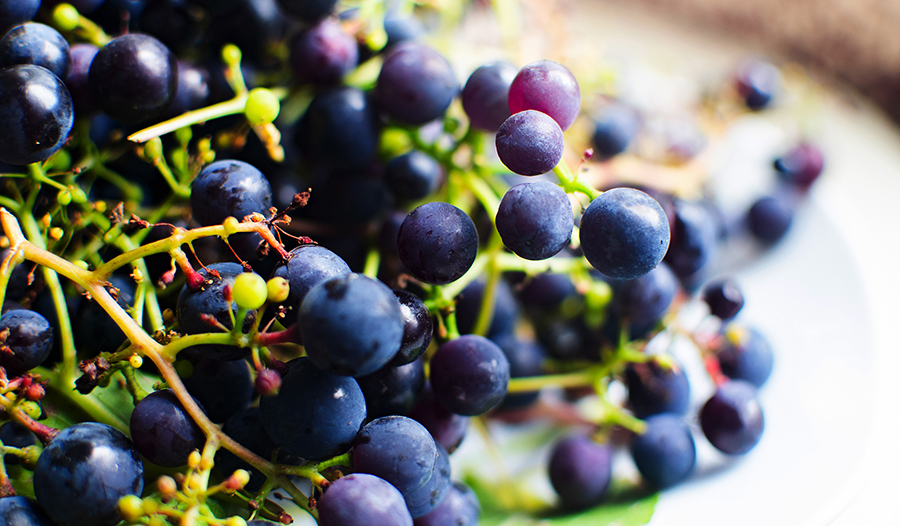Un nou studiu se scufundă în resveratrol și sănătatea creierului

În ultimii 30 de ani, numărul persoanelor cu demență la nivel mondial s-a dublat. Se preconizează că acest număr va continua să crească pe măsură ce vârsta medie a populației mondiale crește. Alegerile stilului de viață, cum ar fi dieta și activitatea fizică regulată, sunt o componentă importantă în menținerea creierului sănătos și funcționarea la un nivel optim.
Cei mai mulți au auzit că vinul roșu poate fi bun pentru sănătatea cuiva, în special pentru sănătatea creierului. Dar de ce este asta? Potrivit oamenilor de știință, conține un compus care păstrează viața cunoscut sub numele de resveratrol.
Un studiu din 2015 arată că resveratrolul poate avea capacitatea de a ajuta la distrugerea celulelor anormale, de a preveni bolile vasculare și de a ajuta la prevenirea tulburărilor cerebrale, cum ar fi demența.
Notă: Este important să rețineți că consumul mai mult decât moderat de alcool poate fi, de asemenea, dăunător sănătății și creierului cuiva. Prin urmare, trebuie luată în considerare consumul de resveratrol din surse non-alcoolice).
Ce este Resveratrolul?
Resveratrolul este un fitonutrient, un compus natural, pe bază de plante care se găsește în vinul roșu, struguri, fructe de pădure și nuci. Proprietățile sale antioxidante protejează celulele creierului și alte componente ale celulelor de deteriorarea oxidativă.
Beneficiile cardiace ale resveratrolului se datorează, în mare parte, capacității sale de a reduce colesterolul LDL (rău) și de a genera oxid de azot, o substanță chimică care ajută sângele să circule mai eficient prin arterele corpului. Acest efect poate ajuta, de asemenea, la îmbunătățirea fluxului sanguin către creier, ceea ce poate explica beneficiul observat în studiul discutat mai jos.
Surse alimentare de resveratrol
- Vin roșu
- Afine
- Pielea uscată de struguri
- Afine
- Struguri
- Arahide
- Fistic
- Ciocolată neagră
Un studiu analizează beneficiile resveratrolului și sănătății creierului
Un studiu din 2020 în Nutrients a evaluat 129 de femei aflate în postmenopauză ale căror vârste au variat între 45 și 85 de ani. Femeile au fost randomizate în două grupuri identice. 66 dintre femei au primit o pastilă placebo pentru a lua de două ori pe zi, în timp ce restul de 63 de femei au primit 75 mg de resveratrol pentru a lua de două ori pe zi. Studiul a durat o durată de 12 luni. Cercetătorii au evaluat efectul resveratrolului asupra cunoașterii, a fluxului sanguin către creier, a tensiunii arteriale, a nivelului de colesterol și a zahărului din sânge.
După efectuarea unei analize finale, cercetătorii au ajuns la concluzia că consumul regulat de resveratrol poate îmbunătăți funcția cognitivă a creierului la femeile aflate în postmenopauză și ar putea încetini declinul cognitiv la femei pe măsură ce îmbătrânesc. Mai exact, cercetătorii au observat o îmbunătățire a vitezei de procesare a creierului, a flexibilității cognitive și a performanței cognitive generale. Viteza fluxului sanguin (BFV) către creier a fost, de asemenea, îmbunătățită.
De asemenea, au observat o mică îmbunătățire a nivelului zahărului din sânge, dar nicio modificare a altor markeri metabolici.
Aceste descoperiri promițătoare sugerează că consumul regulat de alimente bogate în resveratrol și, eventual, suplimente de resveratrol în sine poate oferi efecte benefice creierului îmbătrânit și poate optimiza performanța și funcția creierului.
Aflați mai multe despre resveratrol vizitând articolul meu anterior.
Doza sugerată: 75 mg până la 250 mg o dată sau de două ori pe zi.
Referințe:
- Kilic Eren M, Kilincli A, Eren Ö. Senescența prematură indusă de resveratrol este asociată cu reglarea în jos a SIRT1 și SIRT2 mediată de deteriorarea ADN-ului. Hofmann TG, ed. PLoS ONE. 2015; 10 (4): e0124837. doi: 10.1371/jurnal.pone.0124837.
- Chen CK și Pace-Asciak CR (1996) Activitatea vasorelaxantă a resveratrolului și quercetinei în aorta izolată de șobolan. Gen Pharmacol 27:363-366.
- Mukherjee S, Dudley JI, DK. Dependența de doză a resveratrolului în furnizarea de beneficii pentru sănătate. Doză-răspuns. 2010; 8 (4): 478-500. doi: 10.2203/răspuns doză.09-015.Mukherjee.
- Thaung Zaw JJ, Howe PRC, Wong RHX. Beneficiile cerebrovasculare și cognitive susținute ale resveratrolului la femeile aflate în postmenopauză. Nutrienți. 2020; 12 (3) :828. Publicat în 2020 20 martie. doi:10.3390/nu12030828
Declarație de declinare a responsabilității:Acest blog nu are ca scop să ofere un diagnostic.






























































































